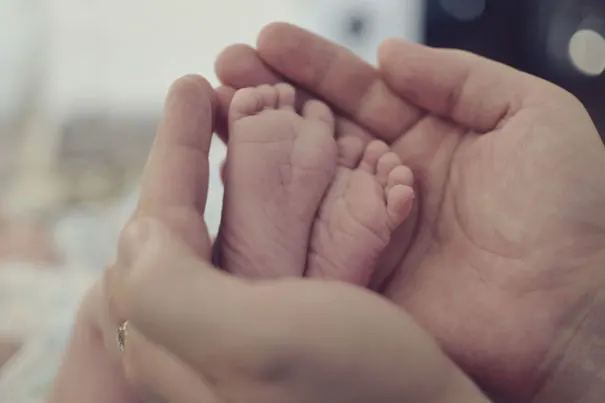How to Care for a Premature Baby
When a baby arrives early and requires an extended hospital stay, it’s normal to have many questions. Developmental pediatrician Suzanne Dixon answers some of the more common concerns and queries shared by parents of preemies.
Hospital Discharge
Q: When does a premature baby get discharged? What goes into that decision? A: Small infants generally go home two to four weeks before their original due date, but there are a number of exceptions.
Many factors contribute to the decision to discharge a preemie. The baby's breathing, heart rate and temperature must be steady and stable in a regular bassinet. If your baby is being monitored for apnea (breathing stoppage) or bradycardia (slow heart rate), you must know how to use the monitor and respond to alarms. Hearing screening, an eye exam, and other tests need to be completed before your baby leaves the hospital. The baby needs to be gaining weight steadily, so you must be able to feed him by whatever means are decided: breast, bottle, gavage (feeding by a tube in the stomach), or a combination of these methods.
Visitors at Home
Q: Should I have visitors when the baby comes home? A: Depending on how little or fragile your infant is, you may need to restrict or ban visitors for a while. A very small infant who's been in the hospital for weeks will need a period of quarantine with no visitors, and an infant whose birth weight was very low may need to have restricted socializing for a year or more.
Limiting visitors can seem tough, especially as you want to share the joy of finally bringing your baby home. It’s important though, helping your baby avoid exposure to dangerous germs. Someone with a cough or cold can be a big risk to a baby recovering from lung disease, a common condition for preemies. Contact with mildly ill household members and regular care providers is okay however, since they share the same environment as the infant. Limiting visitors also reduces the risk of overstimulation. Too much handling, talking, and bouncing can be stressful for young infants. Be sure you reserve time to bond together as a family and to get to know your child.
Follow-Up Appointments
Q: When can I stop taking my baby to the follow-up clinic or appointments? A: S ome subtle learning problems or perceptual concerns don't appear until school age. It is best to keep going to the clinic until you’re packing a lunch box!
Remember these visits are an important source of support and valuable education too.
Birthday Decisions
Q: Should we celebrate our baby's birthday on the actual day he was born or on his due date? A: The date your baby arrived is his legal birthday but it’s possible your child’s development will more closely follow his “adjusted age” (his age as corrected for the weeks of prematurity). Why not celebrate both days, there will be a lot to celebrate when you consider how far you have come!
The Rest of The Family
Q: What about my older kids? This new baby takes all my time. A: A fragile baby does demand extraordinary care and vigilance, and it's a challenge to meet the needs of older children. Try to include your older kids from the beginning. They’ll appreciate simple descriptions of what's happening, clear explanations of why your emotions may be up and down, and suggestions for what they can do to help. Seeing a fragile baby in the neonatal unit can be overwhelming, so until you feel it’s time, older children can get involved by sending drawings or pictures and picking out small toys or clothes. Bring siblings to visit, as long as they are healthy, as soon as the physical apparatus supporting your newborn has lessened. At home, be sure to involve big sisters and brothers in your care of the baby, for example at bath time or diaper-changing time.
Spend one-on-one time with your older children every day, no matter how brief. Have someone else watch the baby if possible while you provide exclusive attention to your older kids.
Regressions in behavior, such as wet pants, sleep issues and more temper tantrums are trying, but very normal. Your older child is adjusting to changed circumstances, just as you are. Don't expect her to like the baby very much either - from her point of view, the baby's not much fun and causes a lot of trouble!
Future risks Q: Will my next baby be premature too? A: That depends on why the first infant came early. Very young women, those over 35 and carriers of twins do have an increased risk of an early birth.
If you have no known risk factors for prematurity other than the history of a previous preemie, the chances are more than 80 percent that your next infant's birth date will be close to the due date.
Join Pampers Club and get:




